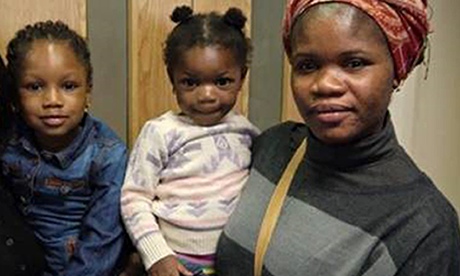
The Home Office is facing calls to suspend the deportation of a mother who fears her two young daughters will become victims of female genital mutilation (FGM) if they go back to Nigeria, after an expert came forward to insist that the risk is genuine.
Lawyers for Afusat Saliu, who is herself a victim of the practice, are launching a late bid to convince immigration officials to take the evidence of the Nigerian-born FGM expert Yemi Fagborun into account.
Fagborun told the Guardian she wanted to speak to the UK Border Agency (UKBA) on behalf of the Saliu family to persuade officials of the danger in sending them to Nigeria.
"My fear is for the two children, who are at risk. People come here for protection and we are sending them back and saying 'we don't care what is happening to you'. It is not good enough. That is what is happening here. She came for protection and it is not good enough," Fagborun said.
Bhumika Parmar, Saliu's lawyer, confirmed that she was trying to halt the deportation so the potentially crucial evidence could be heard.
Saliu and her daughters, three-year-old Basirat and one-year-old Rashidat, were due to be deported to Nigeria on Thursday night. They unsuccessfully argued that they should stay because the children faced being mutilated and Afusat forcibly married at the insistence of their extended family.
They were, however, given a temporary reprieve hours before their flight, after claims that the Home Office - of which UKBA is a part – did not give the requisite notice.
Fagborun attacked the British government for simultaneously taking the lead in the international fight against FGM and deporting people she insisted were at risk of it.
"This is not sending a good signal out and it is going to make our work much, much more difficult. The Home Office does not believe her that there is a genuine risk, but I was in Nigeria in March and it is," she said.
"People at risk of FGM after deportation should be given the same status as those at risk of domestic violence. It is needed to protect these young girls."
A Home Office spokesman said the department did not comment on individual cases.

